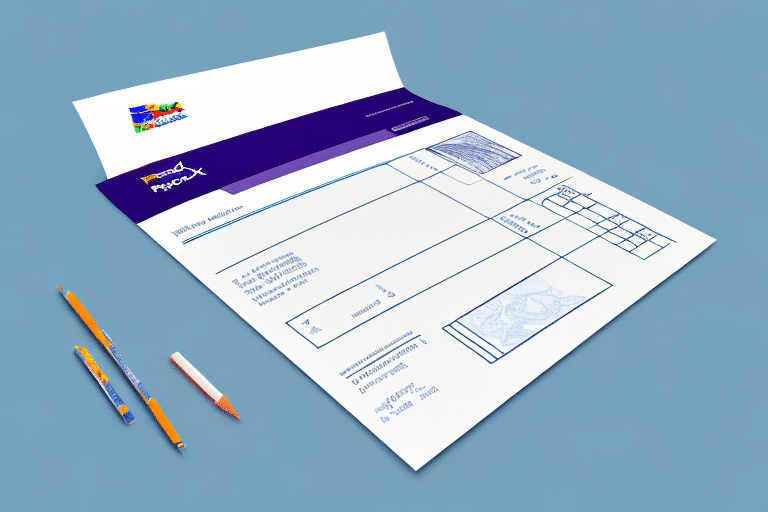Creating a Commercial Invoice with FedEx Ship Manager: A Comprehensive Guide
If you're involved in international shipping, understanding how to create a commercial invoice is essential. A commercial invoice acts not only as a receipt but also provides crucial information required for customs clearance and compliance with import/export regulations. Utilizing FedEx Ship Manager can simplify this process substantially. In this guide, we will delve into the importance of commercial invoices, step-by-step instructions for using FedEx Ship Manager, best practices, common challenges, and advanced features to optimize your shipping operations.
1. Understanding Commercial Invoices and Their Importance in International Shipping
What is a Commercial Invoice?
A commercial invoice is a vital document used in international trade, containing detailed information about the goods being shipped. Key components include:
- Sender and Recipient Details: Names, addresses, and contact information.
- Product Description: Clear and accurate descriptions of the goods.
- Quantity and Value: Number of units and their total value.
- Harmonized Tariff Codes: Classification codes used by customs authorities.
- Country of Origin: Where the goods are manufactured or produced.
- Taxes and Duties: Applicable fees based on the shipment value and destination.
Why are Commercial Invoices Essential?
Commercial invoices serve multiple critical functions, including:
- Customs Clearance: Facilitates the assessment and clearance of goods by customs authorities, preventing delays or rejections.
- Legal Compliance: Ensures adherence to import/export regulations, avoiding potential fines or legal issues.
- Financial Records: Acts as a receipt for both the sender and receiver, aiding in accounting and inventory management.
- Fraud Prevention: Provides transparency, reducing the risk of shipment undervaluation and tax evasion.
According to the U.S. Customs and Border Protection, accurate and complete commercial invoices are crucial for smooth customs processing, enhancing shipment predictability and reliability.
2. The Importance of Accurate Commercial Invoices for Avoiding Shipping Delays
Accuracy in your commercial invoice directly impacts the efficiency and success of your international shipments. Inaccurate information can lead to:
- Shipping Delays: Incorrect details may require additional verification, holding up your shipment.
- Customs Issues: Mismatched information can result in refusals by customs authorities, leading to extra costs and shipment returns.
- Increased Costs: Errors might incur additional duties, taxes, or fines, affecting your overall shipping budget.
Research by Statista indicates that shipping errors contribute to approximately 15% of delays in international logistics, highlighting the necessity for precision in documentation.
3. Step-by-Step Guide to Creating a Commercial Invoice with FedEx Ship Manager
Accessing FedEx Ship Manager
FedEx Ship Manager offers an online platform for managing shipments efficiently. To begin:
- Log In: Access your FedEx account at FedEx.com and log in with your credentials.
- Navigate to Ship: Click on the "Ship" tab on the dashboard.
- Create Shipment: Select "Create Shipment" to start the process.
Entering Shipment Details
Provide comprehensive information about your shipment:
- Sender and Recipient Information: Ensure accuracy in names, addresses, and contact details.
- Package Details: Input weight, dimensions, and packaging type.
- Destination: Specify the destination country, ensuring compliance with its import regulations.
Selecting Shipping Services and Additional Options
Choose the shipping service that best fits your needs:
- Service Type: Options range from same-day delivery to standard international shipping.
- Additional Services: Add-ins like insurance, signature confirmation, or special handling.
Generating and Printing the Commercial Invoice
After entering all required information:
- Review Details: Double-check all entries for accuracy.
- Print Documents: Generate and print the shipping label and commercial invoice directly from Ship Manager.
- Digital Sharing: Optionally, send the invoice electronically to the recipient via email.
4. Best Practices for Filling Out Your Commercial Invoice Correctly
Ensure Completeness and Accuracy
All necessary fields should be filled out thoroughly:
- Complete sender and recipient information.
- Accurate product descriptions and classifications.
- Properly calculate and declare the value of goods.
Utilize Harmonized Tariff Codes
Using the correct Harmonized Tariff Codes (HTS) is essential for accurate duty assessment. Refer to the Harmonized System (HS) codes provided by customs authorities to classify your goods correctly.
Maintain Consistency Across Shipping Documents
Ensure that information on the commercial invoice matches other shipping documents such as the packing list and bill of lading to prevent discrepancies during customs inspections.
Include Necessary Certifications and Documentation
Depending on the shipped goods, additional certifications may be required, such as:
- Certificate of Origin: Validates where the goods were produced.
- Compliance Certificates: Ensures products meet specific standards or regulations.
5. Avoiding Common Mistakes When Creating a Commercial Invoice
Prevent common errors that can disrupt the shipping process:
- Incomplete Information: Missing sender or recipient details can hold up customs clearance.
- Vague Descriptions: Unclear product descriptions may result in misclassification and additional duties.
- Incorrect Values: Overstating or understating values can attract fines or shipment holds.
- Missing HTS Codes: Failing to include Harmonized Tariff Codes can delay customs processing.
Regularly reviewing and cross-referencing your invoices with shipping documents can significantly reduce the likelihood of such mistakes.
6. Overcoming Challenges in Commercial Invoicing
Determining the Correct Harmonized Tariff Code
Identifying the appropriate HTS can be complex. Utilize resources like the U.S. Harmonized Tariff Schedule or consult with a trade specialist to ensure accurate classification.
Accurate Calculation of Taxes and Duties
Utilize online calculators or professional services to estimate applicable taxes and duties based on the destination country's regulations. The World Bank provides resources for understanding international trade fees.
Missing Shipment Information
Maintain a checklist of required information for your commercial invoices and ensure all fields are completed before submission. Implementing standardized forms can help streamline this process.
7. Customizing Your Invoice with Additional Information and Branding
Enhance your commercial invoice by incorporating branding elements and additional information:
- Logo Inclusion: Adding your company logo increases brand recognition and professionalism.
- Custom Fields: Include order numbers, customer references, or purchase order details to facilitate order tracking and customer service.
FedEx Ship Manager allows you to customize invoices by uploading logos and setting up predefined fields, ensuring consistency across all your shipments.
8. Advanced Features of FedEx Ship Manager for Efficient Shipping
Leverage advanced functionalities within FedEx Ship Manager to optimize your shipping workflow:
Batch Processing
Handle multiple shipments simultaneously by using batch processing features. This saves time and reduces manual entry errors.
Shipping Profiles
Create and save shipping profiles for frequent destinations or specific types of shipments. This facilitates quick setup for recurring orders.
Integration with E-commerce Platforms
Integrate FedEx Ship Manager with your e-commerce platforms to automate the generation of commercial invoices and shipping labels, enhancing efficiency and accuracy.
9. The Role of Commercial Invoices in Customs Clearance and Compliance
Commercial invoices are pivotal for customs authorities to:
- Assess Duties and Taxes: Calculate the amount payable based on the declared value and classification of goods.
- Verify Compliance: Ensure that shipments meet the legal standards and import regulations of the destination country.
Non-compliance can lead to penalties, shipment rejections, or legal actions. It's essential to stay informed about the import/export regulations of your target markets, referring to official resources like the U.S. CBP or respective government trade departments.
10. Tracking Your Shipment with FedEx Ship Manager
FedEx Ship Manager offers comprehensive tracking capabilities to monitor your shipment's journey:
- Status Updates: Receive real-time updates on your shipment's progress.
- Delivery Confirmation: Know once your shipment has been successfully delivered.
- Issue Notifications: Get alerts about any delays or issues, allowing you to address them promptly.
Staying informed through tracking ensures transparency and helps manage customer expectations regarding delivery timelines.
Conclusion
Creating an accurate and comprehensive commercial invoice is fundamental to successful international shipping. By utilizing FedEx Ship Manager, you can streamline this process, minimizing errors, ensuring compliance with customs regulations, and enhancing the efficiency of your shipping operations. Implement best practices, leverage advanced features, and stay informed about global trade regulations to optimize your international logistics strategy.






















